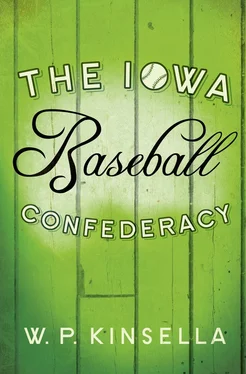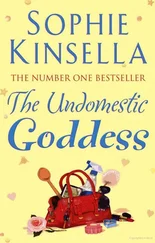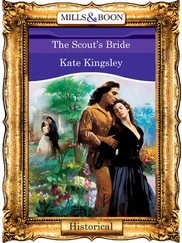My father’s unfortunate dealings with the Chicago Cubs began with his making polite requests for information concerning the 1908 baseball season: player records, box scores, nothing out of the ordinary. At first, the Cubs’ public relations people were most cooperative. I have their letters. However, the information they provided was not what my father wanted to hear. His letters became more pointed, critical, accusatory, downright insulting to the point of incoherence. The final letter from the Chicago Cubs Baseball Club – their stationery has a small picture of Wrigley Field at the top – is dated October 7, 1945, and states clearly: ‘We consider the matter closed and would appreciate it if you did not contact us again.’
After that letter my father began to make personal visits to the Cubs’ corporate offices.
My father’s quest began in 1943. I was born in 1945 and grew up in a home where the atmosphere was one of vague unease. I sensed my father was a troubled man. The general anxiety and discomfort that permeated the air also affected my mother and my sister, Enola Gay.
My father’s problem was this: he was in possession of information concerning the Chicago Cubs, our home town of Onamata, Iowa, and a baseball league known as the Iowa Baseball Confederacy, information that he knew to be true and accurate but that no one else in the world would acknowledge. He knew history books were untrue, that baseball records were falsified, that people of otherwise unblemished character told him bold-faced lies when he inquired about their knowledge of, and involvement with, the Iowa Baseball Confederacy.
As a child, though I sympathized with my father, I never fully understood the significance of his obsession. As the Indians say, one cannot walk in another man’s moccasins. I was never able to conceive what he suffered, until, upon his death, when I was sixteen, I received his legacy, which was not money, or property, or jewels (though I was not financially bereft), but what I can only liken to a brain transplant. For upon my father’s passing, I inherited not only all the information he alone had been a party to, but also his obsession to prove to the world that what he knew was right and true.
His example taught me well, for no matter how futile his efforts seemed, he would not be moved from his goals, just as I shall not be moved from mine. I will pursue the elusive dream of the Iowa Baseball Confederacy until it is admitted that the Chicago Cubs traveled to Iowa in the summer of 1908 and engaged in a baseball game against the Iowa Baseball Confederacy All-Stars.
As there are stages in grieving, in aging, in acceptance of illness, so there seem to be stages in the development of the inherited obsession of which I speak. I began my investigation by making the same polite written inquiries to the Chicago Cubs and other sources who should have known of the Confederacy, and ended with the same personal confrontations and shouted accusations, which resulted in my being firmly escorted from the Cubs’ offices.
Two years ago, I learned, by eavesdropping on a conversation in the box next to mine at Wrigley Field, that the Cubs were in the process of hiring a junior public relations person. I applied for the job; in fact, I submitted a twelve-page letter of application, outlining some of the facts I knew about the Chicago Cubs, past and present. The personnel department didn’t even have the courtesy to acknowledge my application. However, by phoning the Cubs’ offices on various pretexts, I was able to learn that the person hired was to begin work the following Wednesday. I also learned that the executives held business meetings on Monday mornings.
I showed up on Monday, dressed in a rented three-piece suit, looking as eager, expectant, thrilled, and breathless as I anticipated the new employee would feel.
‘Hi! I’m supposed to start work this morning,’ I said, smiling brightly. For the occasion I had had my hair cut and dyed a neutral brown. My hair is usually shoulder length, white as vanilla ice cream, which makes it difficult for me to appear inconspicuous. I am not an albino, for though my skin lacks pigmentation, my eyes have color: a pale, translucent blue.
My job – or, rather, the job of the new public relations person – was to write copy for the Chicago Cubs yearbook. A young woman whom I remembered having a confrontation with a few years before kept checking the dates on her calendar and staring at me, trying, I’m sure, to place me. She assigned me back issues of the yearbook to read, promising to give me more substantial employment after lunch when the public relations director returned.
As I glanced at the yearbooks, I eyed the rows of foot-locker-green filing cabinets, my mouth watering for the opportunity to leap into history. Shortly before lunch I made my way to the supply room and secreted myself behind several thousand Chicago Cubs yearbooks. I lay on the floor and covered myself with the glossy little magazines, their slick surfaces smelling like new-car interiors. I slept for a while, dreaming I was in the hold of a fishing vessel, covered with slippery tropical fish.
When the fluorescent hands on my wrist watch showed 6:00 P.M., I ventured out. The offices were deserted, silent, smelling of paper and coffee grounds.
I spent the entire night skimming through the filing cabinets, reading everything I could find concerning the years 1902–1908, which were the years the Iowa Baseball Confederacy was in existence.
It was sad to find out that, to the Cubs, baseball was not the least magical; it was strictly business. The files contained little but contracts, tax forms, medical expense forms. There were no elaborate personnel files, no newspaper clippings, no fan testimonials.
Here was the Cubs’ greatest pitcher, Mordecai Peter Centennial ‘Three Finger’ or ‘Miner’ Brown, in a manila folder labeled M. BROWN and smudged with fingerprints. Not even a first name. No mention of his 239 victories or of his induction into the Hall of Fame. No mention of his injury, the cropped finger that allowed him to put a special spin on the ball. Just a file with the barest of records.
I did find some of my own correspondence in a file labeled CRANK LETTERS, filed away alongside a letter claiming the Chicago Cubs would win the last pennant before Armageddon and another containing what purported to be conclusive evidence that Ernie Banks and Billy Williams were extraterrestrials. Seeing them side by side, I had to admit that those letters made as much sense as mine.
There were penciled notes on one of my more inflammatory letters: Dangerous? F.B.I.? Relative of E. G. Clarke? My sister, Enola Gay, is a fugitive from justice.
I emerged at 6:00 A.M., disheveled, dry-mouthed, redeyed, and without one shred of evidence that the 1908 Chicago Cubs ever visited Big Inning, Iowa, or, for that matter, that there ever was a Big Inning, Iowa.
‘It is a fact that there are cracks in time,’ my father repeated endlessly. ‘Weaknesses – fissures, if you like – in the gauzy dreamland that separates the past from the present.’ Hearing those words like a musical refrain all through my childhood, I came to believe them, or, rather, accept them; it was never a matter as simple as belief. To me they weren’t remarkable; after all, some children were taught to accept the enormities, the absurdities, the implausibilities of scripture as fact.
‘Time is out of kilter here in Johnson County; that’s my conclusion,’ my father said to me often. ‘But if something is out of kilter, there’s no reason it can’t be fixed. And when it’s fixed I’ll be proven right.’
Briefly stated, here is what my father believed: through those cracks in time, little snippets of the past, like small, historical mice, gnaw holes in the lath and plaster and wallpaper of what used to be, then scamper madly across the present, causing eyes to shift and ears to perk to their tiny footfalls. To most people they are only a gray blur and a miniature tattoo of sound quickly gone and forgotten. There are, however, some of us who see and hear more than they were ever meant to. My father was one of those, as am I.
Читать дальше












